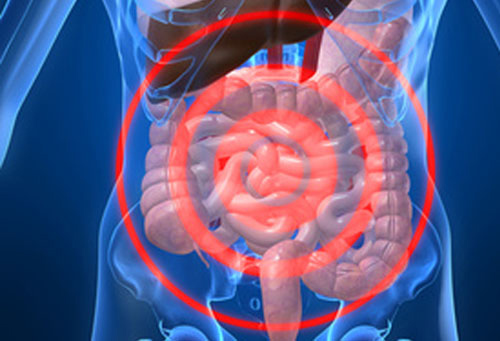
Research using artificial intelligence shows that some bowel cancer patients benefit more from treatment with the monoclonal antibody panitumumab than others based on the levels of certain proteins in their systems.
The research project, which was a collaboration between the University of Leeds in the UK and the international big pharma company Roche, showed high levels of the biomarkers amphiregulin and epiregulin seemed to predict better treatment response.
Colorectal or bowel cancer is the second highest cause of cancer and deaths from cancer in the U.S. It is diagnosed in around 1 million people around the world each year and about one-third of those diagnosed with this cancer die from it.
One possible treatment option for patients with metastatic colorectal cancer with a mutation in the epidermal growth factor receptor (EGFR) gene is the monoclonal antibody panitumumab or cetuximab. However, although some patients do well on these therapies, around 40% do not respond.
Two proteins linked to EGFR, amphiregulin and epiregulin, are often overexpressed in colorectal cancer tumors. High levels of these proteins are linked to better outcomes in patients treated with EGFR inhibitors, but these biomarkers have not yet been adopted into routine testing for these patients.
This study used AI to aid in analyzing histochemical samples from a study of 274 EGFR positive colorectal cancer patients treated with irinotecan or irinotecan plus panitumumab. The analysis assessed levels of the two biomarkers to evaluate whether or not they had an impact on response to the therapy.
Patients with high amphiregulin and epiregulin seemed to benefit more from panitumumab treatment than those with low levels. In the irinotecan vs irinotecan plus panitumumab groups progression free survival was 3.2 vs 8.0 months, respectively, in people with high levels of the two biomarkers. Conversely, there was no significant difference in progression free survival in those with low biomarker levels in the two treatment groups.
Response Evaluation Criteria in Solid Tumors (RECIST) response rate – a measure of treatment success – was also significantly better in study participants with high amphiregulin and epiregulin in the panitumumab group versus irinotecan alone at 48% vs 6%. Again, this difference was not significant in those with low levels of the biomarkers.
“As more treatment options become available for advanced colorectal cancer, it is becoming increasingly difficult for patients and their doctors to choose the treatment that’s right for them. This test will help patients navigate this decision-making process more easily,” said Christopher Williams, M.D., from Leeds University’s Division of Pathology and Data Analytics, who is also the lead author of the paper describing the research published in the journal Clinical Cancer Research.
“By using artificial intelligence to semi-automate the test process, we anticipate it may be easier for results to be delivered to patients faster to better influence treatment decisions,” said Kandavel Shanmugam, Ph.D., a senior director of medical innovation at Roche Diagnostics, who led the research.













